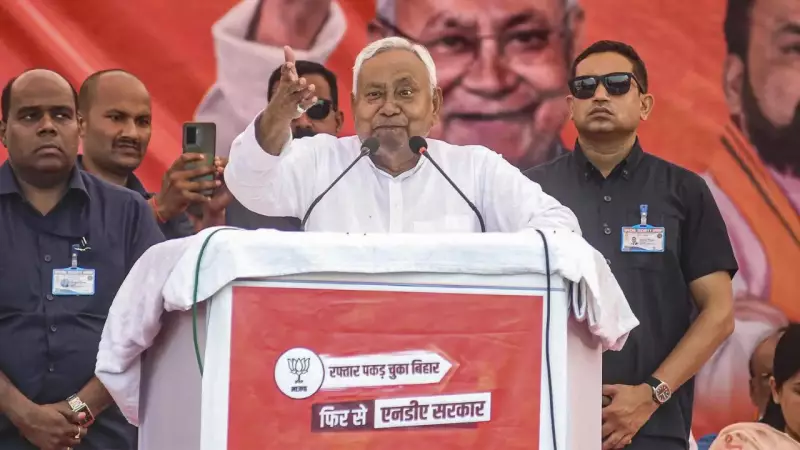
In a dramatic display of political pragmatism, the National Democratic Alliance (NDA), led by the ever-adaptable Nitish Kumar, has secured a resounding victory in the Bihar assembly elections, surging past the halfway mark with a clear majority. This win marks another successful reinvention for Kumar, who managed to turn his previous criticisms of populist freebies into the very foundation of his triumphant campaign.
The Great Freebie Reversal
Just a year before the polls, the political narrative from the NDA camp was starkly different. Chief Minister Nitish Kumar had openly mocked the politics of freebies, specifically targeting Arvind Kejriwal's Delhi model by declaring that "electricity will not be given for free." Prime Minister Narendra Modi had similarly warned the nation against the dangers of "revadi culture," accusing opposition parties of attempting to buy votes with short-term giveaways instead of focusing on long-term infrastructure.
However, in the run-up to the 2025 Bihar elections, the same duo executed a complete U-turn. The NDA's campaign was brimming with promises that mirrored what they had once derided. From tablets for Vikas Mitras to direct cash allowances for unemployed youth, the alliance embraced a new strategy. Kumar, the former critic of populism, became its practitioner, rolling out a cascade of sops aimed at women, students, and workers, effectively blurring the lines between genuine welfare and electoral wooing.
Women-Centric Schemes: The Decisive X-Factor
The cornerstone of the NDA's successful strategy was its sharp focus on women voters. Initiatives like the Mukhyamantri Mahila Rojgar Yojana, which offers seed funding and follow-up support for women entrepreneurs, created a tangible connection with this crucial voter base. This approach mirrored the impact of similar programs like the Ladli Behna scheme in Madhya Pradesh and the Majhi Ladki Bahin program in Maharashtra, which had previously boosted turnout and loyalty among female voters.
Beyond women-specific schemes, the NDA built a multi-layered support network by combining broad welfare measures with targeted grassroots incentives. These included:
- Free electricity for the first 125 units.
- Tablet and smartphone grants for Vikas Mitras and Shiksha Sevaks.
- Increased pensions for senior citizens, widows, and the disabled.
- Clothing allowances for construction workers and raised honorariums for ASHA, Anganwadi, and Jeevika workers.
This extensive web of benefits, coupled with the promise of one crore jobs over five years, built a powerful narrative of inclusive growth that resonated across communities.
A Proven Formula from Other States
The NDA's victory in Bihar is not an isolated phenomenon but part of a larger national trend where targeted welfare, especially for women, has reshaped electoral outcomes. In Madhya Pradesh, the Ladli Behna Yojana, offering monthly cash support, turned women into a decisive voting bloc for the BJP. In Maharashtra, the Mahayuti alliance's Majhi Ladki Bahin Yojana led to a marked rise in women's turnout and directly influenced the results in beneficiary-heavy districts.
Even in Delhi, where all parties competed with promises of free electricity and water, the perception of welfare backed by credible governance played a key role. The Bihar results confirm that in contemporary Indian politics, targeted freebies are no longer a taboo but a tactical necessity for victory.
Ironically, the very "revadis" that were once dismissed as a danger to democracy became the secret sauce for Nitish Kumar's political survival. The NDA's mix of welfare and wooing delivered a decisive win, proving that in the theatre of Indian politics, even the fiercest critics eventually learn to serve the sweets of populism.






